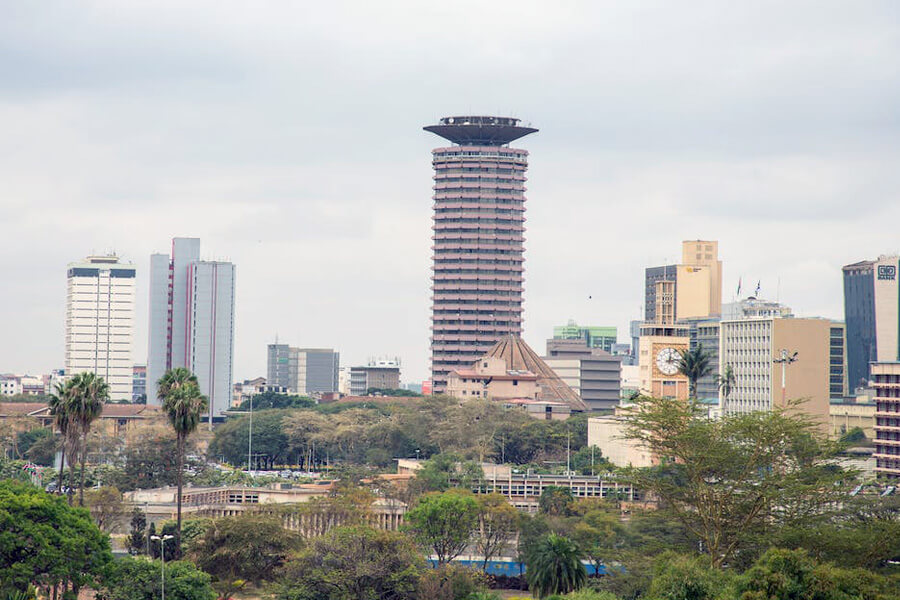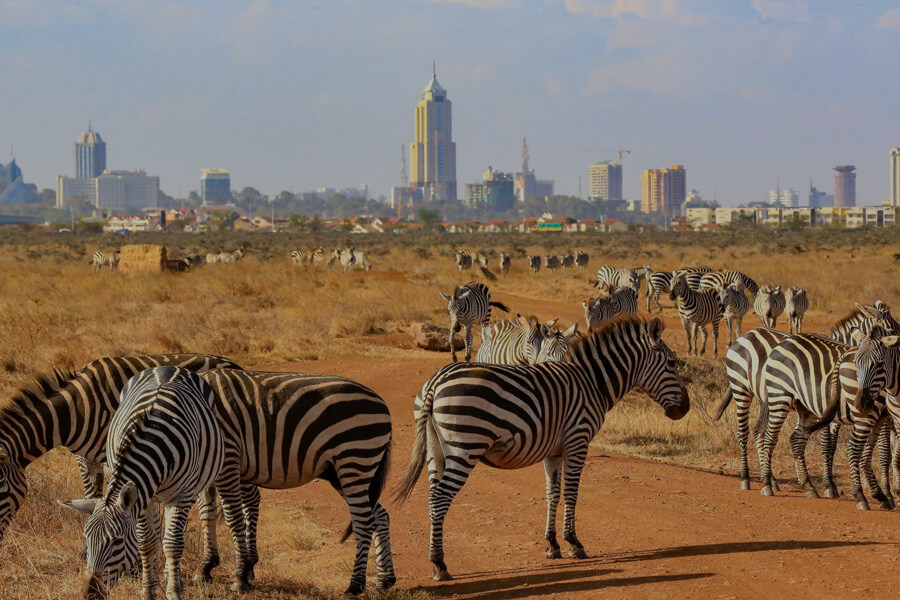Kenya is well-known for its beautiful scenery, wildlife and culture all of which make it a wonderful travel destination. As you plan your safari, safety is important and the question will come up – Is Kenya safe to visit?

Generally, Kenya is a very safe country to visit and this is why it ranks among the best places to visit in Africa. Whether you are planning to visit the beaches or the encounter the wild animals of the open savannah, Kenya has many great attractions to suit your plans.
However, as with any travel destination, it’s important to take certain safety precautions to ensure that you have a safe and enjoyable trip.
Here are some general safety guidelines to keep in mind when traveling to Kenya.
General Safety Tips
- Be aware of your surroundings: Always be aware of your surroundings, especially in crowded areas or unfamiliar places. Keep an eye out for any potential risks or hazards, such as pickpocketing or theft.
- Avoid walking alone at night: If possible, avoid walking alone at night, especially in dimly lit areas or secluded places. It is safer to use a taxi or ride-sharing service.
- Keep your valuables safe: Keep your valuable items, such as your passport, money, and electronics, in a secure location, such as a hotel safe or a hidden money belt. Avoid carrying large amounts of cash or wearing flashy jewelry.
- Use reputable transportation: Use reputable transportation services, such as licensed taxis or hired cars from reputable companies. Avoid using public transportation, especially at night.
- Be cautious when using ATMs: When using ATMs, make sure that no one is watching you enter your PIN, and avoid withdrawing large amounts of cash at once.
- Avoid protests and demonstrations: Avoid participating in or attending any protests or demonstrations, as they can quickly become violent.
- Keep a low profile: Avoid drawing attention to yourself by dressing conservatively and avoiding overly touristy clothing.
Health Guidelines
Kenya is a tropical country, and travelers should take precautions to avoid common health risks such as malaria and food-borne illnesses.
- Get vaccinated: Before traveling to Kenya, make sure that you’re up-to-date with your vaccinations. Recommended vaccinations include yellow fever, hepatitis A and B, and typhoid.
- Malaria prevention: Malaria is a risk in Kenya, so it’s important to take preventive measures, such as taking anti-malaria medication, using insect repellent, wearing long-sleeved clothing, and sleeping under mosquito nets.
- Food and water safety: Drink only bottled or purified water and avoid tap water, ice cubes, and raw or undercooked food. Stick to hot, cooked food and fruits and vegetables that you can peel yourself.
- Sun protection: Protect yourself from the sun by wearing sunscreen, a hat, and sunglasses.
- Medical care: Make sure to have adequate medical insurance that covers emergency medical care in Kenya. If you need medical attention, seek care from reputable clinics or hospitals.
- Pack a first aid kit: Pack a first aid kit with basic medical supplies such as band-aids, antiseptic, and pain relievers.
Safety on Safari

Kenya is known for its diverse wildlife, and many visitors come to experience a safari. However, it’s important to take precautions when interacting with wild animals.
- Follow the advice of your guide: Always listen to your safari guide and follow their instructions when viewing wildlife.
- Keep a safe distance from wildlife: Do not approach or try to touch wild animals, as they can be dangerous. Keep a safe distance, as recommended by your safari guide.
- Stay in the vehicle: When on a safari game drives, stay inside the vehicle and avoid getting out unless your guide gives permission. Animals can be unpredictable and dangerous, and it’s important to keep a safe distance.
- Stay in designated areas: When on safari, stay within designated areas and avoid going off-road, as this can damage the environment and put you at risk.
- Respect the animals: Respect the animals and their habitat by not making loud noises or littering.
- Don’t feed the animals: Do not feed the animals or throw food from the vehicle. This can be harmful to the animals and can also attract more aggressive animals.
Transportation Safety
Kenya has a good transportation system with a range of options including buses, taxis, and private cars. However, it’s important to take safety precautions when using public transportation.
- Taxis: Use licensed taxis or ride-hailing services like Uber or Bolt to avoid getting scammed by unlicensed taxi drivers. Always agree on the fare before starting your journey.
- Buses: When using public buses, avoid sitting near the doors or windows as they are more vulnerable to theft. Keep your belongings close to you and never leave your bags unattended.
- Private cars: When renting a car or using a private car, make sure that the driver is licensed and the car is in good condition. Avoid driving at night as the roads can be poorly lit and dangerous.
- Use caution when crossing the street: Always use caution when crossing the street, especially in busy areas.
- Wear seatbelts: Always wear seatbelts when traveling in a car or a bus.
- Check for safety features: When traveling by bus, make sure that the bus has basic safety features such as emergency exits, functioning seatbelts, and fire extinguishers.
- Avoid walking alone at night: Avoid walking alone at night, especially in isolated areas.
- Be cautious when using public transportation: If you’re using public transportation, be cautious of pickpockets and keep your belongings close to you
Cultural Norms and Customs
Kenya has a rich cultural heritage, and it’s important to respect local customs and traditions when traveling there. Here are some guidelines to keep in mind:
- Dress appropriately: Dress modestly, especially when visiting religious sites or local villages. Avoid wearing revealing clothing or shorts and tank tops.
- Respect local customs: Respect local customs and traditions, such as removing your shoes before entering someone’s home or covering your head when visiting a mosque.
- Learn some basic Swahili: Learn some basic Swahili phrases, as it shows respect for the local language and culture. This can also help you communicate better with locals and make your trip more enjoyable.
Crime and Personal Safety
Crime can happen anywhere, and it’s important to take precautions to avoid becoming a victim. Here are some general safety guidelines to keep in mind:
- Be aware of your surroundings: Pay attention to your surroundings and avoid walking alone at night. Stick to well-lit areas and avoid walking in unfamiliar neighborhoods.
- Keep your valuables safe: Keep your valuables such as passports, wallets, and phones in a safe place and never leave your bags unattended.
- Avoid wearing expensive jewelry or carrying large amounts of cash: Avoid wearing expensive jewelry or carrying large amounts of cash, as this can make you a target for theft.
- Avoid scams: Be wary of scams such as fake tour operators or people posing as police officers. Always verify the legitimacy of the person or company before handing over any money.
- Be cautious when using your phone: Be cautious when using your phone in public, as phone snatching is a common crime in Kenya.
Emergency Information
In case of emergencies, it’s important to have access to emergency information, such as:
- Emergency contacts: Keep a list of emergency contacts, such as local hospitals, police, and your embassy.
- Travel insurance: Make sure that your travel insurance covers emergency medical care and repatriation.
- Embassy information: Know the location and contact information of your embassy in Kenya, in case of any emergencies or legal issues.
- Medical facilities: Know the location of the nearest medical facilities and hospitals in case of a medical emergency.
Conclusion
Traveling to Kenya can be an amazing experience, but it’s important to take safety precautions to ensure that you have a safe and enjoyable trip. By following the guidelines above, you can help minimize the risk of accidents, illnesses, and other safety concerns while traveling in Kenya.
Remember to stay aware of your surroundings, respect local customs and traditions, and have emergency information readily available in case of any unforeseen circumstances. With these precautions in mind, you can enjoy all that Kenya has to offer with peace of mind.
We hope this guide answers your questions about whether Kenya is safe to visit – and better prepares you for an epic African safari experience.




















